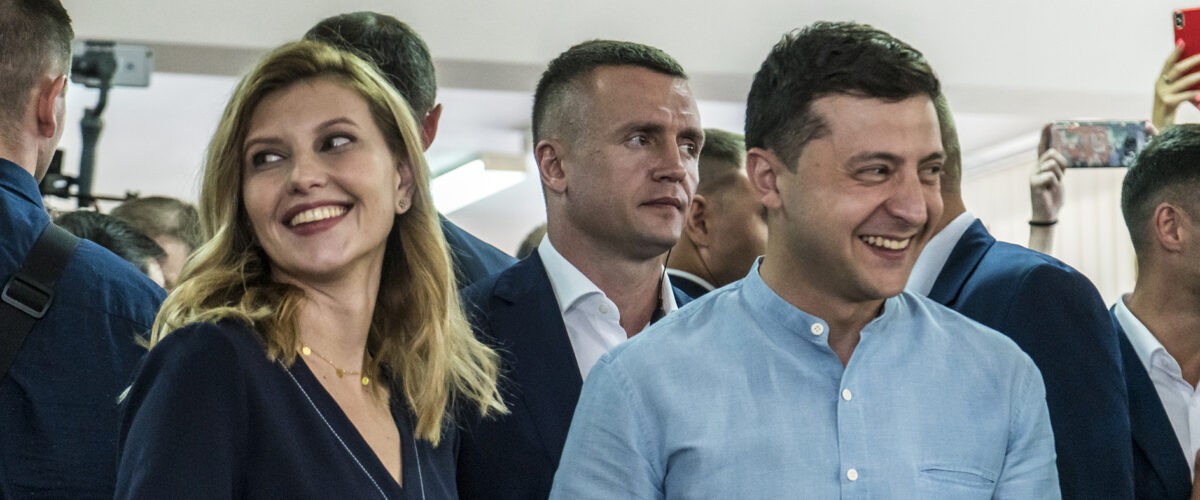Olena Zelenska, educated as an architect, is a screenwriter and the first lady of Ukraine. In a recent Vogue interview, she highlighted Ukrainian women’s tenacity and skill in caring for loved ones, going to work and resisting Russian military aggression in their homes and cities. Yet, fear accompanies them as they give birth in bomb shelters and provide aid to wounded neighbors as they seek sanctuary where safety is improbable.
Zelenska created a Telegram channel for Ukrainians to contribute their personal stories of war so that our world can quickly access testimonies of human resilience amid atrocities in Bucha, Mariupol and other cities ravaged by civilian death, rape, looting and torture.

Paula Mangum Sheridan
Zelenska shared how ordinary citizens can contribute to Ukrainians: “The main thing is not to get used to the war — not to turn it into statistics. Continue going to protests, continue to demand that your governments take action. Ukrainians are the same as you.”
Zelenska challenges us to resist alongside Ukrainians, knowing that we do so from a geographic distance. How can our resistance make a difference for Ukrainians and others in harm’s way? What does resistance look like here and now?
We can resist our habits to think of this war and other wars as expected, as a way of life. The Upsala Conflict Data Program defines war as “a state-based conflict or dyad which reaches at least 1,000 battle-related deaths in a specific calendar year,” including civilians and combatants killed in action.
The Council on Foreign Relations identifies war in more than 20 regions in Mexico, Eastern Europe, the Middle East, Africa and Asia, ranging from civil conflict to territorial disputes between countries.
War may be ubiquitous, but it is not normal. The frequency and duration of war cannot numb our commitment to human rights and freedoms for ourselves and others. War is not a sustainable practice, and the geopolitical and human injuries expand over generations of descendants.
While conflicts may end in real-time, the war can continue through traumatic reactions in civilians, warriors, economies and communities. Don’t get used to war as a regular part of our daily lives. Instead, resisting the belief and action that war is abnormal and unacceptable is the only option for resolving conflict.
“Resisting the belief and action that war is abnormal and unacceptable is the only option for resolving conflict.”
We also must resist the seduction of disinterest or indifference if we think the war has nothing to do with our personal or national affairs. We learn and relearn that war anywhere affects us all. Our economy, access to resources and well-being link to the war in other places.
The Council on Foreign Relations reports that the Russian invasion of Ukraine has broader ramifications for critical global cooperation on issues such as arms control, nuclear proliferation, cybersecurity, energy security and conflicts in countries such as Syria and Libya. Don’t get used to self-interest and isolation. Use purchasing power and civic action with care. Resist by living intentionally as a world citizen, contributing to local communities and the world in a more sustainable way.
We can resist through our democratic process of advocacy and decision-making. We can ensure that our civic and political organizations represent our wishes to support Ukraine’s right to self-governance and freedom from oppression. We can evaluate the work of valid relief organizations and contribute to efforts that address human needs and our heart’s passion. We can insist that our elected officials work for a peaceful and just end to aggression and continue to support what citizens choose for themselves.
We also can create more systems of protection for civilian casualties of war, particularly women, children and people who are elderly and frail. The U.N. Office of the Special Adviser on Gender Issues and Advancement of Women adopted a Resolution on Women, Peace and Security in October 2000, affirming women’s increased participation in peacemaking, conflict resolution, post-conflict reconstruction. It calls on all parties to “take special measures to protect women and girls from gender-based violence, particularly rape and other forms of sexual abuse, in situations of armed conflict.” Even though the U.N. followed up with updates in 2004, our current media sources suggest that women and children are targeted and attacked in homes, shelters and evacuation corridors.
“Jesus refused to submit to systems that kept people, particularly vulnerable people, from living more abundant lives.”
As we reflect on the last days of Jesus’ life, we see how foreign aggression shaped his life and community. The Roman empire devalued the lives of Jews and other subjects and controlled them by physical dominance, legal constraints and collaboration with Jewish religious leaders and government officials. Jesus refused to submit to systems that kept people, particularly vulnerable people, from living more abundant lives. He showed us “the things that make for peace” even when we may not yet understand how to live these truths in our world.
In the meantime, we have a plumbline of love that holds us to a higher standard of care for ourselves and our world neighbors.
We may falter. We may tire. But we can resist lowering our standards for loving our neighbor. We won’t get used to anything less than God’s abiding love.
Paula Mangum Sheridan taught social work at Whittier College and Loma Linda University. She has partnered with social work educators in Denmark and Finland to explore global social work practice. She is a licensed clinical social worker and supports voter accessibility and the rights of people without homes in her community. She is a member of All Saints Episcopal Church in Pasadena, Calif.
Related articles:
How does the period before the Civil War resemble our current social climate? | Analysis by Andrew Gardner
Addressing war with those who don’t remember 9-11 | Opinion by Brad Bull


